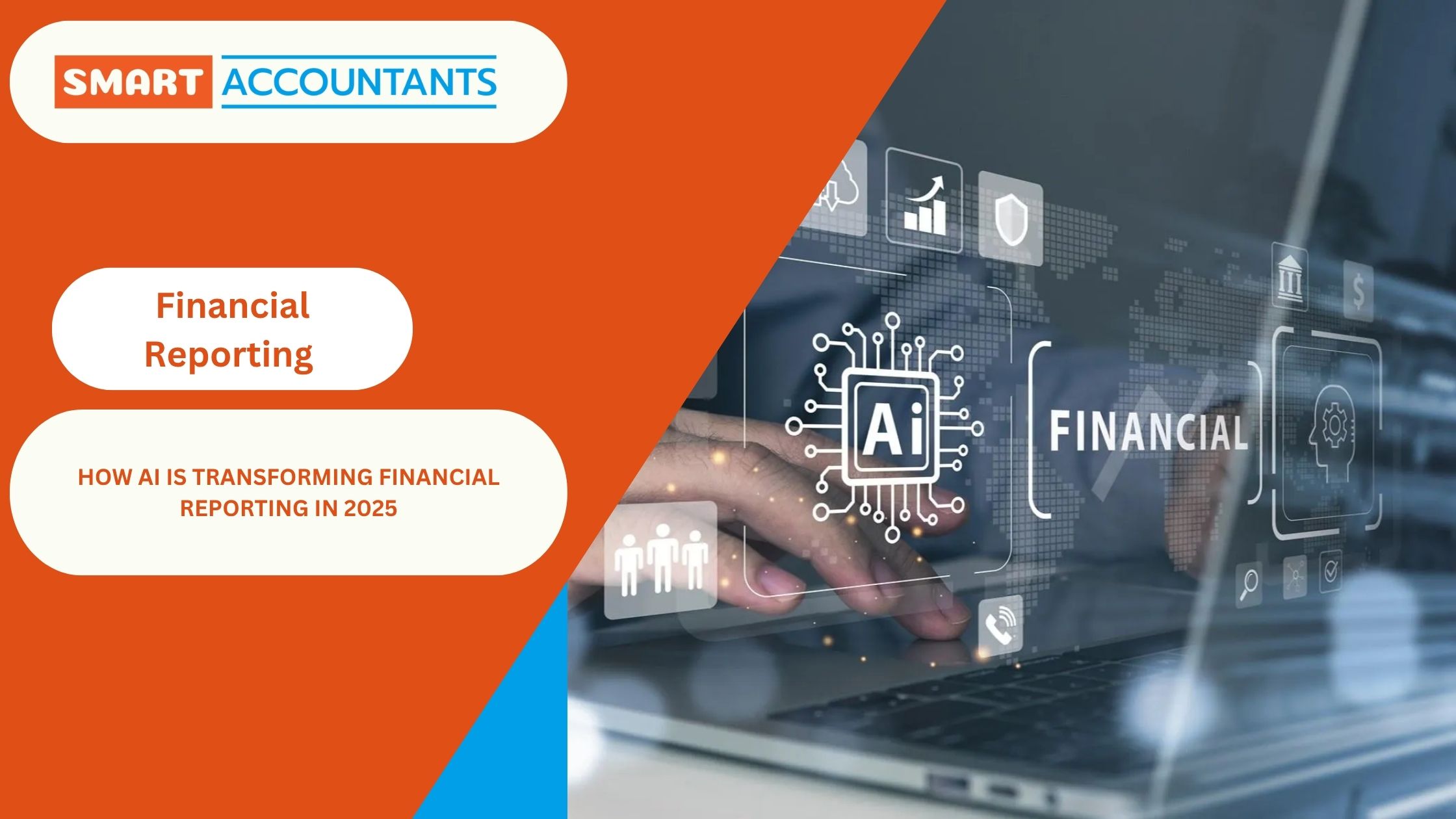Artificial Intelligence (AI) is reshaping industries, and financial reporting services are no exception. In 2025, AI-driven technologies are revolutionizing how businesses collect, analyze, and report financial data, improving accuracy, efficiency, and strategic insight. This blog explores the impact of AI on financial reporting and what it means for your business.
What Is AI in Financial Reporting?
AI in financial reporting refers to the use of machine learning algorithms, natural language processing, and automation tools to enhance the creation, analysis, and delivery of financial reports.
These technologies help automate repetitive tasks, detect anomalies, and generate insights that were previously difficult to obtain manually.
Benefits of AI-Driven Financial Reporting Services
1. Improved Accuracy and Error Reduction
AI algorithms can automatically detect discrepancies, missing data, and unusual transactions, minimizing human error.
2. Faster Report Generation
Automation speeds up the compilation and formatting of financial reports, reducing turnaround time from days to minutes.
3. Predictive Analytics
AI models forecast trends, cash flow, and financial risks, enabling proactive decision-making.
4. Natural Language Generation (NLG)
Some AI tools generate easy-to-understand narrative summaries of complex financial data, making reports more accessible.
5. Real-Time Reporting
AI-powered platforms provide real-time dashboards with live financial data, improving agility.
How AI Enhances Compliance and Audit Readiness
AI systems continuously monitor financial data to ensure compliance with GAAP, IRS regulations, and other standards. They generate audit trails and documentation that facilitate smoother audits and regulatory reviews.
Examples of AI Applications in Financial Reporting
- Automated Data Entry: Scanning and categorizing invoices and receipts without manual input.
- Anomaly Detection: Identifying potential fraud or errors through pattern recognition.
- Cash Flow Forecasting: Predicting future cash positions based on historical data.
- Regulatory Updates: Automatically adjusting reporting frameworks as rules change.
- Customized Reporting: Generating tailored reports based on stakeholder needs.
Integrating AI with Financial Reporting Services
Combining AI technology with expert financial reporting services offers the best of both worlds: advanced automation with professional oversight. Service providers help interpret AI-generated insights, ensure accuracy, and apply business context.
Challenges and Considerations
- Data Privacy: Ensuring sensitive financial data is secure.
- Implementation Costs: Initial investment in AI technology can be significant.
- Change Management: Training teams to trust and use AI tools effectively.
- Data Quality: AI effectiveness depends on clean, high-quality data inputs.
Summary: Embrace AI to Future-Proof Your Financial Reporting
At Smart Accountants, we recognize that AI is transforming financial reporting services by improving speed, accuracy, and insight generation. Businesses embracing AI-enhanced reporting will enjoy stronger compliance, better decision-making, and a competitive advantage in 2025 and beyond.
FAQs About AI in Financial Reporting
Q1: Is AI replacing accountants and financial professionals?
No, AI assists with automation, but expert interpretation remains essential.
Q2: How secure is AI-based financial reporting software?
Reputable providers use advanced encryption and compliance protocols.
Q3: Can small businesses afford AI-powered reporting tools?
Cloud-based AI solutions are increasingly affordable for small and medium businesses.
Q4: How does AI improve audit readiness?
By creating detailed audit trails and continuously monitoring compliance.
Q5: What’s the first step to integrating AI in financial reporting?
Assess your current reporting process and partner with experienced financial reporting services.






